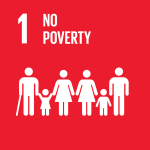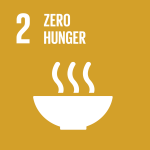Vientiane, June 3 2020 – At its 58th Council Meeting this week, the Global Environment Facility approved a grant towards developing a $6 million project reducing the vulnerability of Lao communities to floods and droughts.
Led by the Department of Water Resources under the Ministry of Natural Resources and Environment with support from the United Nations Development Programme (UNDP), the project aims to increase resilience in two particularly vulnerable areas – Xe Bang Hieng river basin and the city of Luang Prabang – by restoring healthy forests and watersheds.
Xe Bang Hieng river basin in Savannakhet Province is a major rice-producing area key to the country’s food security. It is also an area vulnerable to both drought and severe flooding. Luang Prabang is an important cultural heritage site particularly prone to flooding.
“While the world battles COVID-19, the challenges of addressing climate change, along with achieving sustainable development, continue,” said UNDP Deputy Resident Representative, Balasubramaniam Murali. “The development of this project in a partnership between Ministry of Natural Resources & Environment and UNDP is an important contribution towards lifting and keeping our people out poverty (SDG1), ensuring food security (SDG2), achieving sustainable communities (SDG11) as well as protecting our environment (SDG 15) – all closely linked of course to combating climate change (SDG13).”
In addition to restoring and protecting ecosystems, the project focuses on strengthening capacities and climate-related policies at national and provincial levels, as well as rolling out innovative tools for communication and knowledge management – such as mobile phone apps – and protective infrastructure including cascading weirs, drainage channels and rainwater harvesting.
The project intends to work closely with rural communities, particularly women and other vulnerable groups, to transition to more sustainable agricultural practices and alternative climate-resilient livelihoods.
Since the 1960s, Lao PDR has seen an increased frequency in severe flooding, often associated with tropical storms and typhoons, as well as drought. Their frequency is projected to increase further with climate change. Adapting is a national priority.
“Over recent years, UNDP in Lao PDR has been working hand-in-hand with the Government to address the challenges of climate change, including preparing the agriculture sector, developing early warning systems, improving water management, outlining their target actions under the global Paris Agreement, and accessing global climate finance,” said Murali. “We are pleased to continue this collaboration as we enter the Decade of Action, the final push for countries to achieve their ambitions under Agenda 2030.”
The product of ongoing consultations with government, UN agencies, local communities, civil society organisations and the private sector, the project supports Lao PDR across a number of its development and adaptation priorities including under its National Adaptation Programme of Action and Intended Nationally Determined Contribution, as well as related to environmental protection, biodiversity and resources management.
With the provision of the project preparation grant to UNDP, the project will now conduct technical studies and formulate a detailed project document, with full funding approval and implementation anticipated by 2022.
Links
‘Lao PDR hosts major global funds in push for climate-resilient, sustainable future’, February 2019
‘Managing climate change with early warnings’, April 2019
‘New programme to strengthen Lao PDR’s readiness to cope with impacts of climate change’, November 2017
‘Stronger together: Lao PDR and Timor-Leste exchange ideas on managing the source of life - water’, May 2017
‘Lao PDR launches climate change action plan with UNDP’, March 2016
About UNDP
UNDP partners with people at all levels of society to help build nations that can withstand crisis, and drive and sustain the kind of growth that improves the quality of life for everyone. On the ground in nearly 170 countries and territories, we offer global perspective and local insight to help empower lives and build resilient nations. www.undp.org
About The GEF
The Global Environment Facility (GEF) was established on the eve of the 1992 Rio Earth Summit to help tackle our planet’s most pressing environmental problems. Since then, the GEF has provided close to $20.5 billion in grants and mobilized an additional $112 billion in co-financing for more than 4,800 projects in 170 countries. Through its Small Grants Programme, the GEF has provided support to nearly 24,000 civil society and community initiatives in 133 countries.
Aksonethip Somvorachit, Communications Analyst at UNDP Lao PDR aksonethip.somvorachit@undp.org
Keti Chachibaia, Regional Technical Advisor for Climate Change Adaptation, UNDP keti.chachibaia@undp.org
Karma Lodey Rapten, Regional Technical Advisor for Climate Change Adaptation, UNDP karma.rapten@undp.org



